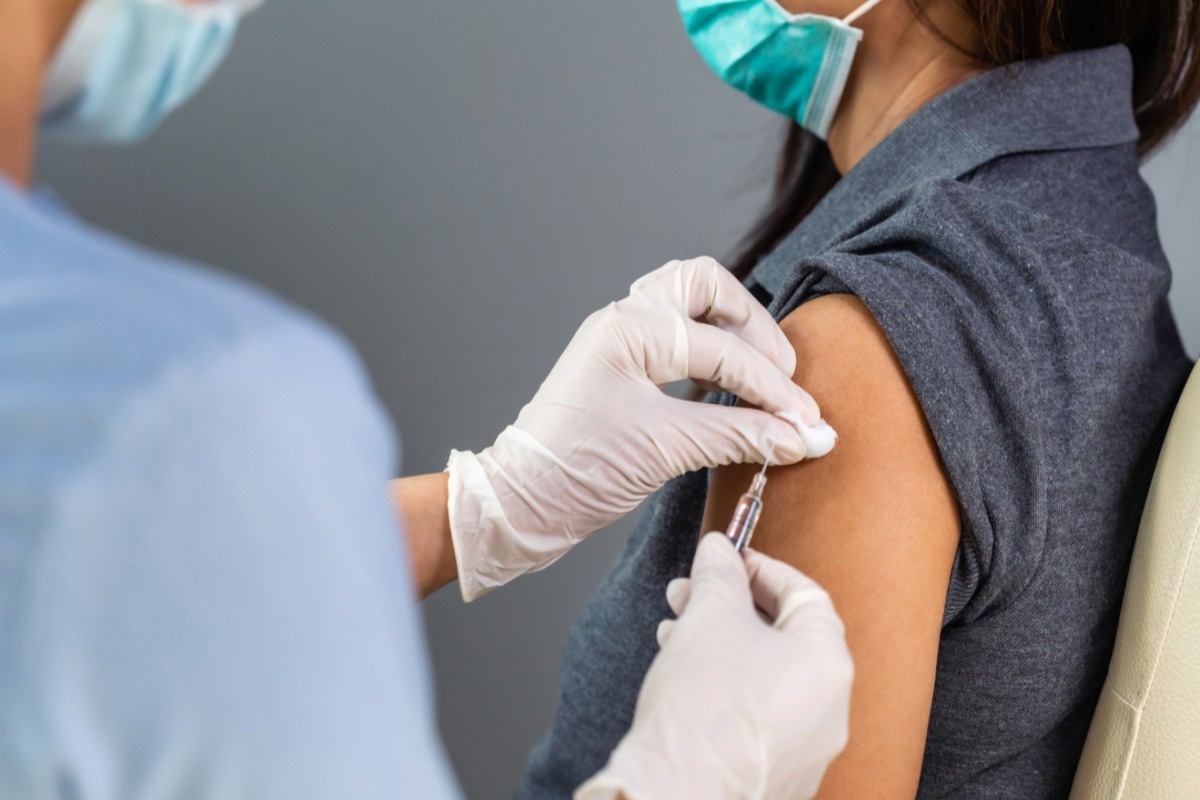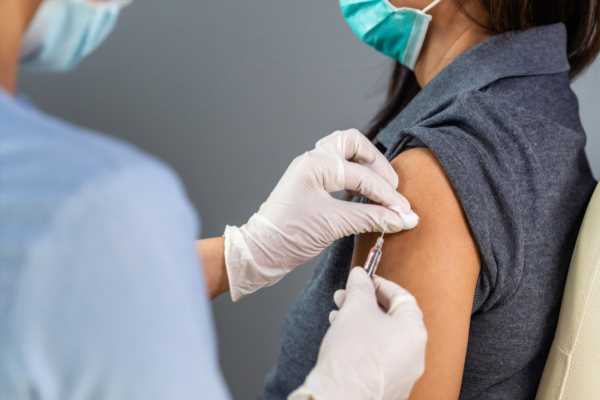In a recent study posted to the medRxiv* preprint server, scientists compared the effectiveness of the severe acute respiratory syndrome coronavirus 2 (SARS-CoV-2) BNT162b2 and mRNA-1273 vaccine booster doses in England.

Background
The United Kingdom (UK) SARS-CoV-2 vaccination program began its initial booster dose vaccination (third vaccine dose) in September 2021. Initially, booster doses were offered to populations at a high risk of developing severe coronavirus disease 2019 (COVID-19), according to recommendations from the Joint Committee for Vaccination and Immunization (JCVI). By mid-December 2021, they had been gradually made available to the entire adult population.
The COVID-19 BNT162b2 Pfizer-BioNTech vaccine was used firstly in the UK, then starting on October 29, 2021, a half-dose of the mRNA-1273 Moderna vaccine was also used. Simultaneous boosting with BNT162b2 and mRNA-1273 vaccines, the receipt of these vaccines was governed substantially by local availability instead of clinical criteria, allowing for a direct evaluation of their efficacy against COVID-19-positive tests and severe SARS-CoV-2 infection. Yet, no randomized trials conducted such comparisons.
About the study
In the current study, on account of National Health Service (NHS) England, the researchers used the OpenSAFELY-TPP database to match adults who received the SARS-CoV-2 mRNA-1273 or BNT162b2 vaccine on vaccination date, age, primary vaccine course, and other factors. To examine the efficacy of booster vaccination with the mRNA-1273 and BNT162b2 vaccines among adults, they used the OpenSAFELY-TPP database, which is linked to data from the national CoV monitoring, hospital episodes, and mortality registry and covers 40% of English primary care practices.
Recipients were qualified to participate in the study if they received a booster dose between October 29, 2021, and January 31, 2022, while Delta and then the Omicron variants predominated. The subjects were monitored afterward for 12 weeks.
The study outcomes included positive COVID-19 test, SARS-CoV-2-related hospitalization, and mortality. Using hazard ratios (HRs) and risk differences (RD), the team calculated the cumulative incidence of every outcome and measured comparative effectiveness.
Results
Overall, the study results showed that during the research period, 10,139,268 people registered at a TPP (a data processor) practice had a COVID-19 booster shot with either mRNA-1273 (2,899,845) or BNT162b2 (7,239,423), with 6,264,525, i.e., 86.5%, and 6,264,525, i.e., 87.1%, eligible for matching. Compared to mRNA-1273 booster recipients, eligible BNT162b2 booster recipients were typically more deprived, older, and more likely to have a history of clinical conditions. Additionally, the subjects were more likely to have received BNT162b2 as their initial vaccination course.
Throughout 23,150,504 person-weeks of monitoring, there were 224,640 COVID-19-positive tests, 786 SARS-CoV-2-linked hospitalizations, and 30 COVID-19-associated deaths. In the initial 12 weeks post-booster vaccination, the team determined that mRNA-1273 offered superior protection over BNT162b2 against a SARS-CoV-2-positive test and, in particular, COVID-19-related hospitalization. Just 30 COVID-19-linked deaths were reported in both vaccine cohorts, making it difficult to determine the HR precisely.
Across the 12 weeks after booster vaccination, about one in 14 individuals had a positive SARS-CoV-2 test, indicating the elevated infection rates during the study period, especially from December 2021 onwards since the Omicron variant became dominant, and the insufficient protection from infection provided by booster vaccination. People whose initial vaccination course was BNT162b2 relative to ChAdOx1 had a considerably superior benefit of mRNA1273 above BNT162b2 in averting positive SARS-CoV-2 tests, indicating a potential advantage of heterologous boosting in infection prevention. Likewise, people previously SARS-CoV-2-infected benefited from mRNA-1273 more than those who had no history of COVID-19.
Less than one in 3,800 booster recipients were hospitalized with COVID-19, and less than one in 100,000 died with COVID-19 as a contributing or underlying cause. Severe COVID-19 disease was extremely uncommon up to 12 weeks post-booster vaccination. Regardless of clinical vulnerability, age, or evidence of past infection, the relative efficacy of mRNA1273 versus BNT162b2 against COVID-19 hospitalization was comparable.
Conclusions
The present observational study compared the efficacy of COVID-19 mRNA-1273 and BNT162b2 booster vaccination in over three million adults. According to the authors, this was the initial study evaluating these vaccines' potential against severe SARS-CoV-2 infection outcomes.
The study findings illustrated that for the initial 12 weeks following booster vaccination, the mRNA-1273 COVID-19 vaccine was more efficient than BNT162b2 at preventing SARS-CoV-2 infection and hospitalization linked to COVID-19. The findings strongly indicate that mRNA-1273 was superior to BNT162b2 for both the initial vaccination and subsequent booster doses. The study data was significant in deciding which vaccines to procure for upcoming booster programs. In contrast to not boosting, both mRNA-1273 and BNT162b2 vaccinations were safe and notably efficient against COVID-19.
Notably, the scientists mentioned that people should not be discouraged from receiving BNT162b2 booster vaccination if provided due to the results of this study.
*Important notice
medRxiv publishes preliminary scientific reports that are not peer-reviewed and, therefore, should not be regarded as conclusive, guide clinical practice/health-related behavior, or treated as established information.
- WIlliam J Hulme, Elsie M F Horne, Edward P K Parker, Ruth H Keogh, Elizabeth J Williamson, Venexia Walker, Tom Palmer, Helen J Curtis, Alex Walker, Amir Mehrkar, Jessica Morley, Brian MacKenna, Sebastian C J Bacon, Ben Goldacre, Miguel A Hernan, Jonathan A C Sterne. (2022). Comparative effectiveness of BNT162b2 versus mRNA-1273 boosting in England: a cohort study in OpenSAFELY-TPP. medRxiv. doi: https://doi.org/10.1101/2022.07.29.22278186 https://www.medrxiv.org/content/10.1101/2022.07.29.22278186v1
Posted in: Medical Science News | Medical Research News | Disease/Infection News
Tags: Coronavirus, Coronavirus Disease COVID-19, covid-19, Efficacy, Hospital, Immunization, Mortality, Omicron, Primary Care, Research, Respiratory, SARS, SARS-CoV-2, Severe Acute Respiratory, Severe Acute Respiratory Syndrome, Syndrome, Vaccine

Written by
Shanet Susan Alex
Shanet Susan Alex, a medical writer, based in Kerala, India, is a Doctor of Pharmacy graduate from Kerala University of Health Sciences. Her academic background is in clinical pharmacy and research, and she is passionate about medical writing. Shanet has published papers in the International Journal of Medical Science and Current Research (IJMSCR), the International Journal of Pharmacy (IJP), and the International Journal of Medical Science and Applied Research (IJMSAR). Apart from work, she enjoys listening to music and watching movies.
Source: Read Full Article
